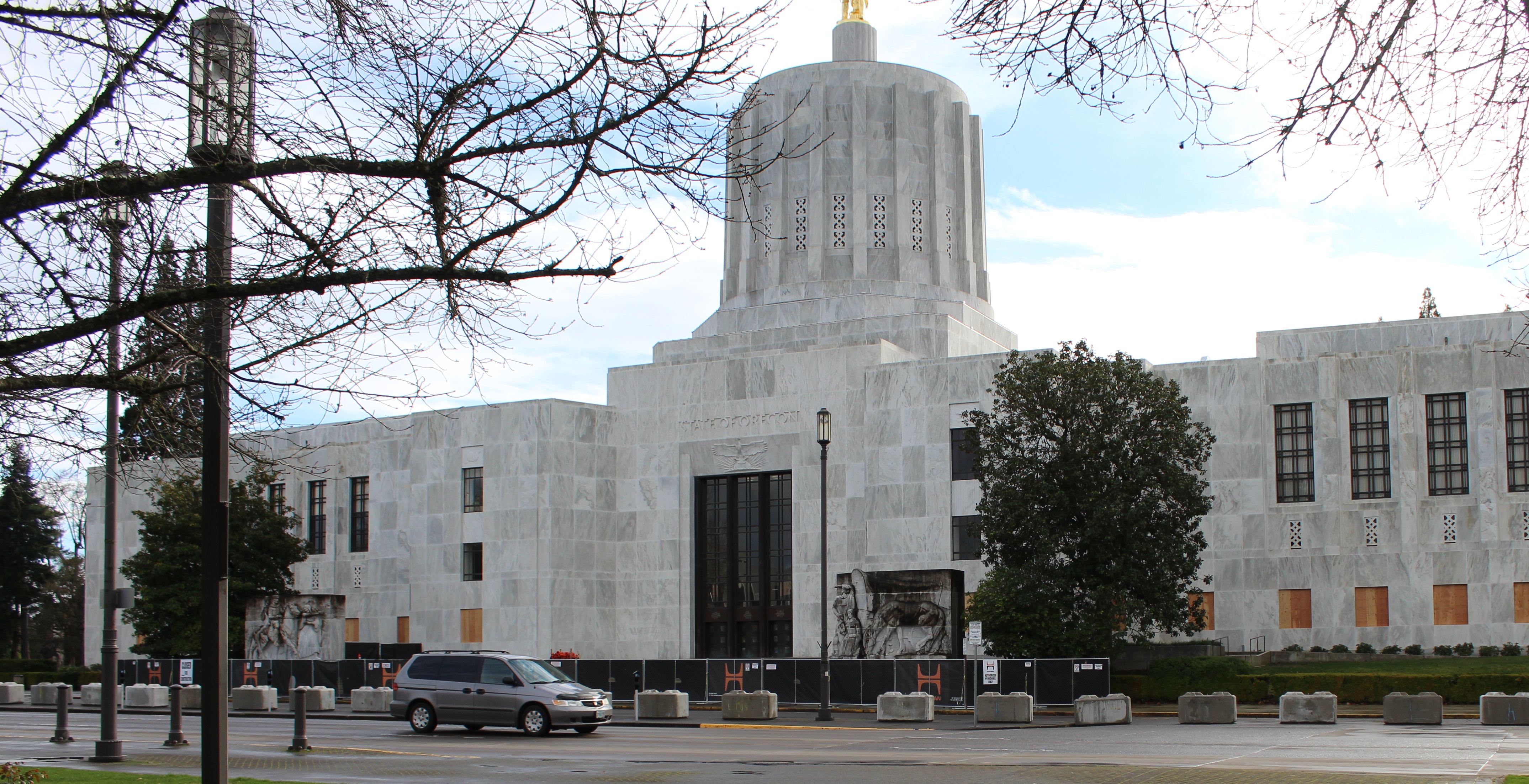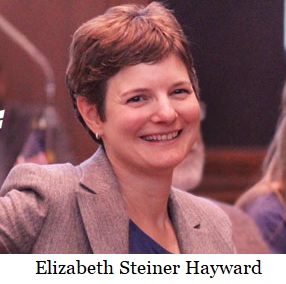It’s not the King of Rock. It’s the Electronic Valuation Information System
Editor's note: This is the fifth of a multipart series on HB 5202, the budget bill for the 2022 Legislative Session.
A somewhat confusing part of the budget is the Article XI-Q bond program, which was passed by voters in 2010. It is used to acquire, construct, remodel, repair, equip or furnish real or personal property that is owned or operated by the State of Oregon. In order to keep the State’s cost of financing as low as possible, the bonds are primarily issued on a taxâ€exempt basis under the IRS federal tax code saving interest cost over the prior method of Certificate of Participation. Upon project completion, the unspent proceeds remaining are usually used to pay debt service or to be transferred to a different legislatively approved project.
ORS 286A.824 allows an agency to request financing for real or personal property projects that may be financed with Article XI-Q bond proceeds. Bond funds are not included in the agency’s budget, but in separate policy packages. But they need authorization to obligate taxpayers for the indebtedness through legislative budget bills.
SB 5701 increases bond authorizations for the 2021-23 biennium approving $156.07 million. This measure increases the general Fund support debt by $54.06 million in Article XI-Q general obligation bond authority reflected in
HB 5202.
Within that authority is a decrease of $435,000 to the Department of Revenue that resulted from previously approved Article XI-Q bonds for the Electronic Valuation Information System (ELVIS). This reduction to cover the taxable portion of the project frees up $400,000 from project costs and $35,000 from costs of issuing bonds. This project total is $3,810,000 Article XI-Q bond authority remains for the 2021-23 biennium.
The Oregon Judicial Department requested an increase for the Crook County Courthouse. Approved were an additional $4,445,000 Article XI-Q bonds to finance $4,416,705 of project costs and $28,295 for costs of issuing the bonds. The authorization results in total 2021-23 Article XI-Q bond authority of $16,330,000 for the construction of a new facility to replace the Crook County Courthouse.
State Capitol Accessibility, Maintenance, and Safety Phase III, approved $19,865,000 Article XI-Q bonds to finance $19,630,000 of project costs and $235,000 for costs of issuing the bonds. The project is for capital improvements to the State Capitol Building, including upgrades to the 1938 building for improved functionality, fire protection systems, seismic retrofits, roof repairs, security upgrades, IT and media modernization, and upgrades to remaining mechanical, electrical, and plumbing equipment not addressed in Phases I and II.
New amounts are also directed to public universities in the amount of $30 million for Higher Education Coordinating Commission grants. Approved was $5.1 million to Oregon Department of Emergency Management, Resiliency Grant Fund. Lottery Bond authorization for 2021-23 are also increased in SB 5701 by $23.07 million to support three projects.
Details for bonds can be found in
SB 5701 Measure Summary. Bonds are often dismissed because it isn’t a direct draw from the General Fund. But it is like charging a credit card and sooner or later the debt has to be paid by taxpayers.
--Donna Bleiler| Post Date: 2022-03-16 06:46:10 | Last Update: 2022-03-14 11:09:50 |
$15 million for the Oregon Clean Vehicle Rebate Program
Editor's note: This is the fourth of a multipart series on HB 5202, the budget bill for the 2022 Legislative Session.
Gas prices has everyone concerned, but when the Whitehouse spokesperson was asked about the gas shortage, she responded with a grin, “we are obviously all in on meeting the President’s goals to get to 100 percent clean energy by 2035 and net zero carbons by 2050, and if you drive an electric car this would not be affecting you.†This statement comes after Elon Musk said that leaders of some countries have asked him to shut down satellite-based internet service and twitter inundated him to turn off all Tesla cars in Russia -- he refused. You may say that wouldn’t happen here, but we’ve already been
warned of rolling blackouts when
HB 2021 was passed during the 2021 Session. Can you imagine the control government would have if we all had electric vehicles? We already have smart meters on our homes.
As part of an overall statewide investment in climate, the budget adjustment bill,
HB 5202, includes two separate one-time General Fund appropriations of $15 million to be deposited into dedicated funds for programs at the Department of Environmental Quality, directed by Richard Whitman. The first $15 million was deposited into the Zero-Emission Incentive Fund to provide additional funding for the electric vehicle rebate program known as the Oregon Clean Vehicle Rebate Program. This program was established in
HB 2017 which passed during the 2017 Session and is funded from privilege tax revenue of approximately $12 million per year. With increased growth in the electric vehicle sector in recent years, the program is anticipated to be oversubscribed.

The second $15 million was deposited into the Medium and Heavy-Duty Electrification Fund, established in
HB 4139 passed in 2022, sponsored by Representative Dan Rayfield (D-Corvallis), as a new grant program supporting medium and heavy-duty zero-emission vehicle charging and fueling infrastructure projects. This one-time funding is intended to support grants to public or private entities for capital improvements and technical assistance to support the installation of charging infrastructure for zero-emission medium and heavy-duty vehicles. Projects will be awarded through a competitive request with priority given to projects located in communities disproportionately impacted by diesel pollution or are connected to proposed or existing transportation corridor projects, and projects that demonstrate available matching funds.
A corresponding $15 million of Other Funds expenditure limitation was provided to expend the monies in the fund. Included in this amount are anticipated costs for administrating the grant program, including $373,329 in the 2021-23 biennium for one position and potential contracting costs.
A D V E R T I S E M E N T

A D V E R T I S E M E N T
The DEQ and the Oregon Department of Transportation are directed to report back to the Joint Committee on Transportation by December 1, 2022, with an analysis of existing incentives available to support the transition to zero emission medium and heavy-duty transportation fleets. The agencies are further directed to research incentives offered in other states and to provide recommendations on expanding or creating incentives to support businesses in the transition to zero emission medium and heavy-duty vehicles. This effort should include analyses on incentives for both vehicles and electric charging or other fuel infrastructure.
Additionally, the DEQ was approved $517,000 General Fund to support laboratory operations across all three major program areas of Air Quality, Water Quality, and Land Quality. Also approved was $484,553 General Fund for information technology costs.
That’s $5.5 million dedicated in the short session to convince you to buy an electric vehicle and put your transportation needs in the hands of government.
--Donna Bleiler| Post Date: 2022-03-15 06:42:23 | Last Update: 2022-03-14 11:04:06 |
Elections Related Bills Have a Cost
Editor's note: This is the third of a multipart series on HB 5202, the budget bill for the 2022 Legislative Session.
Oregon’s short session passed two major bills that could impact election results.
SB 1527, introduced by the Senate Committee on Rules and Executive Appointments, chaired by Senator Rob Wagner, reduces the number of electors who must be registered as member of a minor political party in order for that minor political party to retain political party status from one-half of one percent to one-quarter of one percent of total number of registered electors in state. It also authorizes the Secretary of State as the only one that certifies elections, sets election rules and audits for recount.
HB 4133 requires the Oregon Centralized Voter Registration (OCVR) system to enable an individual to register to vote entering only their final four digits of their Social Security number and to electronically submit image of their signature. Implementation is to be no later than January 1, 2026.
HB 4133 was not sent to Ways and Means for funding waiting to the next biennium. However, the Elections Division has selected a vendor that recently completed similar project to OCVR in Arizona and Washington. They requested $5,300,000 Federal Funds expenditure limitation increase to pay costs associated with the OCVR system project and it was approved. This project is part of a modernization effort involving the state’s centralized voter registration and elections management software.
The federal Help America Vote Act (HAVA), which passed in 2002, provided limited federal funding to be used by states to defray the cost of required changes to elections systems and processes made by the law. The state’s remaining HAVA funds are being used to pay the one-time OCVR replacement project costs
A D V E R T I S E M E N T

A D V E R T I S E M E N T
HB 5202 provides $327,112 General Funds to support positions in the Elections Division, which changed position support funding from Help America Vote Act federal funding to the General Fund.
A good example of waste when the legislature gets ahead of the process is
HB 5006, passed in 2021, which appropriated $2,000,000 General Fund to the Secretary of State for “grants to counties to address county elections offices equipment and technology needs.†At the time of passage, no formal plan for these grants had been developed. A new elections improvement plan passed that includes $120,000 grants for each county, along with new postal barcode scanners for a total cost of $1,160,000. Another $370,000 was approved for the Secretary of State to procure statewide elections services such as search engine optimization, and statewide ballot tracking, which are cheaper for the state to provide centrally rather than having each county attempt to procure their own equivalent services individually. Also approved was $470,000 to be held back as contingency funds for potential emerging elections needs. Any contingency monies remaining would be distributed equally among counties at the end of the biennium
The OCVR and passing
SB 1527 giving the Secretary of State power over local elections is a primary concern of Janice Dysinger, Oregonians for Fair Elections. She believes this is a set up to adopt same-day-voting, which allows registration at the same time you vote. There are two other bills she thinks will return, lower the voting age to 15 and allowing prisoners to vote. Regardless of the number in opposition to all the election bills, the Oregon voting system continues to erode.
--Staff Reports| Post Date: 2022-03-13 06:50:03 | Last Update: 2022-03-11 10:58:01 |
How the Lottery Impacts the State School Fund
Editor's note: This is the second of a multipart series on HB 5202, the budget bill for the 2022 Legislative Session.
Digging through the 100-page
HB 5202 omnibus budget bill from the Joint Committee on Ways and Means -- co-Chaired by Representative Dan Rayfield -- and the changes to the 2021-23 legislatively adopted budget, one thing stood out. State School Fund shows a negative $97,592,219 of General Funds.
Adjustments to the State School Fund is offset to align with
SB 5703, the lottery revenue forecast for 2021-23. Oregon State Lottery funds are projected for the biennium and SB 5703 adjusts lottery accounts with a 5.3% increase. That amounts to an increase of $60,982,219 Lottery funds for the State School Fund.
Other Funds make up the difference of $36,610,000. They come from adjustments in the most recent forecast of the Corporate Activities Tax, and Marijuana related revenue. Taken together, the State School Fund is unchanged for the 2021-23 biennium. This shifting of funds uses the remaining available Lottery Funds.
The biggest impact is the sale of Elliott State Forest, authorized by, which establishes the Elliott State Research Forest removing it from the Common School Fund. The Common School Fund consist of state-owned unclaimed properties and the Elliot Forest, and resources are to be used to the benefit of schools.
HB 5202 appropriates a one-time General Fund payment of $121,000,000 for the Elliott Forest. It is intended to satisfy the financial obligations to the Common School Fund appraised in 2016 at a value of $221 million. In 2019, $100 million was paid to the Common School Fund from the proceeds of certificates of participation that were authorized for issuance. Based on this appraisal, decoupling the Forest from the Common School Fund is estimated to cost $121 million. Once separated, the Elliot State Forest will transfer oversight to the newly established Elliott State Research Forest Authority as provided in
HB 1546.
Satisfying the financial obligations to the Common School Fund is one of the tasks that must be completed prior to that HB 1546 becoming operative on January 1, 2024. The Common School Fund was projected to produce $133,059,086 for biennium 2021-23. It’s hard to visualize how $221 million investment will return over 50% in interest.
A D V E R T I S E M E N T

A D V E R T I S E M E N T
OSU currently estimates that they will need an initial investment of approximately $23 million for 2024-2026 for research equipment and the operational costs associated with starting up the research and operations programs. Federal funds are targeted for these costs, but if federal funds aren’t received, it is not known what entity would pay these costs. Additionally, OSU requests $17 million in capital costs for research and administrative facilities.
Up front, the Elliott State Research Forest has all the makings of another money guzzling department that will cost taxpayers a lot more than continuing it under the Common School Fund. It remains to be seen if OSU can make it productive, and whether the school fund investment will turn a profit.
--Donna Bleiler| Post Date: 2022-03-12 06:37:07 | Last Update: 2022-03-14 10:42:23 |
You might need drugs for this.
Editor's note: This is the first of a multipart series on HB 5202, the budget bill for the 2022 Legislative Session.
To the average Oregonian, there just isn’t enough time to scour through a 100-page bill and decipher if your interests are being protected.
HB 5202 was the Emergency Board and budget reconciliation bill for the 2022 short session. The 100-page omnibus bill -- from the Joint Committee on Ways and Means, co-Chaired by Elizabeth Steiner Hayward -- makes changes to the 2021-23 legislatively adopted budget and implements 2022 budgetary decisions. The bill contains an 81 page summary of adjustments and rebalancing of agency budgets.
Overall,
HB 5202 includes additional spending of $1.4 billion General Funds, $82.1 million Lottery Funds, $2.1 billion Other Funds, and $2.2 billion Federal Funds for a total of $5.8 billion. The bill makes various appropriations, dis-appropriations, and expenditure limitations. It also appropriates General Funds to the Emergency Board for six new special purpose appropriations and adjusts 12 previously approved special purpose appropriations in the amount of $419,778,807.
The state seems to be flush with money, but citizens aren’t feeling it and inflation is having an additional impact. While the increase in salaries for legislators stalled out, the emergency special purpose appropriations for state employees released $198.8 million to cover the union negotiated increase of 6.95% for 2021-22 biennium.
How flush the state is evident by approximately 164 projects funded with one-time payments from General Funds. But maybe what is more concerning are the programs that received additional funding that will increase the annual budget at a higher level.
A D V E R T I S E M E N T

A D V E R T I S E M E N T
Voters should research the fiscal impact to the General Fund when passing a ballot measure. The Psilocybin Program was established by
Ballot Measure 109 in 2020. The program was funded by a one-time General Fund of $4.1 million plus 10 positions to fund the second year of costs. This increase is in addition to first year funding of $2.2 million General Fund and 14 positions. That is a biennium budget going forward of over $10 million. Program services take effect January 1, 2023, at which time it will start collecting Other Fund revenues from licensing fees and tax revenue from the sale of psilocybin products. Just as cannabis has grown into a massive agency, psilocybin is headed toward the same outcome.
Likewise,
Ballot Measure 110 passed by voters in 2020 deals with the use of illegal drugs that received funding for 77 additional positions for the behavioral health program appropriating an additional $130.2 million. Some additional funding comes from Other Funds, which only means the cost is collected from the public in less transparent ways outside of taxing. Removing criminal penalties for low-level drug possession has increased the need for a behavioral health program.
Remember the lottery incentives the Governor offered to get people to get vaccinated? Apparently, she didn’t follow through on funding payments. The bill uses $12.4 million in federal Coronavirus Relief Funds unspent by the Health Systems Division in 2019-21 to pay for one-time expenses related to the agency’s response to the COVID-19 pandemic. These expenses include $3 million for vaccine incentives and lottery payments, which were announced in summer 2021; $9 million for incentives; largely hiring and retention bonuses, for the behavioral health workforce; and $0.4 million for health equity grants. These funds were transferred to OHA and are budgeted as Other Funds.
There is a lot to dig through so watch for part 2.
--Donna Bleiler| Post Date: 2022-03-11 10:21:02 | Last Update: 2022-03-11 10:44:03 |
Read More Articles








 The second $15 million was deposited into the Medium and Heavy-Duty Electrification Fund, established in HB 4139 passed in 2022, sponsored by Representative Dan Rayfield (D-Corvallis), as a new grant program supporting medium and heavy-duty zero-emission vehicle charging and fueling infrastructure projects. This one-time funding is intended to support grants to public or private entities for capital improvements and technical assistance to support the installation of charging infrastructure for zero-emission medium and heavy-duty vehicles. Projects will be awarded through a competitive request with priority given to projects located in communities disproportionately impacted by diesel pollution or are connected to proposed or existing transportation corridor projects, and projects that demonstrate available matching funds.
The second $15 million was deposited into the Medium and Heavy-Duty Electrification Fund, established in HB 4139 passed in 2022, sponsored by Representative Dan Rayfield (D-Corvallis), as a new grant program supporting medium and heavy-duty zero-emission vehicle charging and fueling infrastructure projects. This one-time funding is intended to support grants to public or private entities for capital improvements and technical assistance to support the installation of charging infrastructure for zero-emission medium and heavy-duty vehicles. Projects will be awarded through a competitive request with priority given to projects located in communities disproportionately impacted by diesel pollution or are connected to proposed or existing transportation corridor projects, and projects that demonstrate available matching funds.






